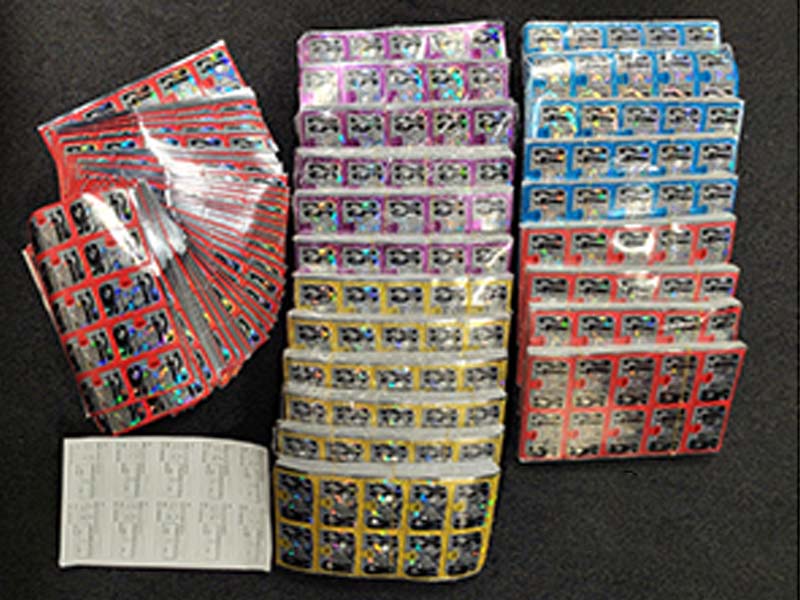Philadelphia, PA – U.S. Customs and Border Protection (CBP) officers in Philadelphia recently intercepted a major shipment of counterfeit Pennsylvania vehicle inspection stickers, valued at $1.4 million. The 22,000 fraudulent decals, shipped from Israel to a Philadelphia address, were seized on December 16, 2024, after being confirmed as fake by Pennsylvania authorities.
The two shipments, containing 10,000 and 12,000 stickers, arrived separately on November 26 and December 9, raising suspicions among CBP officers who detained the parcels. Upon further investigation, it was confirmed that the inspection decals were counterfeit.
“Unscrupulous actors peddling fraudulent vehicle inspection stickers create a very serious public safety concern,” said Cleatus P. Hunt, Jr., CBP’s Area Port Director for the Area Port of Philadelphia. “Fake inspection stickers mask unsafe motor vehicles that place all motorists on our roadways in harm. Customs and Border Protection officers will continue to seize illicit and illegal products that could be harmful to consumers and the public when we encounter them.”
The stickers are a critical part of Pennsylvania’s annual vehicle inspection process, which ensures compliance with safety, mechanical, and emissions standards. Vehicles operating under counterfeit inspection decals may not meet these safety requirements, putting drivers and other motorists at significant risk of accidents, injuries, or even fatalities.
For vehicle owners looking to bypass costly repairs by purchasing fake inspection stickers, the consequences can be severe. Pennsylvania law penalizes the use of counterfeit stickers with fines of up to $500 and potential jail time.
The intercepted decals represent a significant blow to a dangerous black market that undermines public safety. By allowing uninspected and potentially unsafe vehicles onto the roads, counterfeit inspection stickers pose a hazard not just to their owners but to everyone sharing the roadway.
This operation highlights CBP’s crucial role in protecting the public by intercepting dangerous and illegal shipments. In addition to counterfeit goods like these, CBP officers screen international travelers and cargo for illicit narcotics, unreported currency, weapons, and prohibited agricultural products that could harm U.S. safety, businesses, and economic security.

